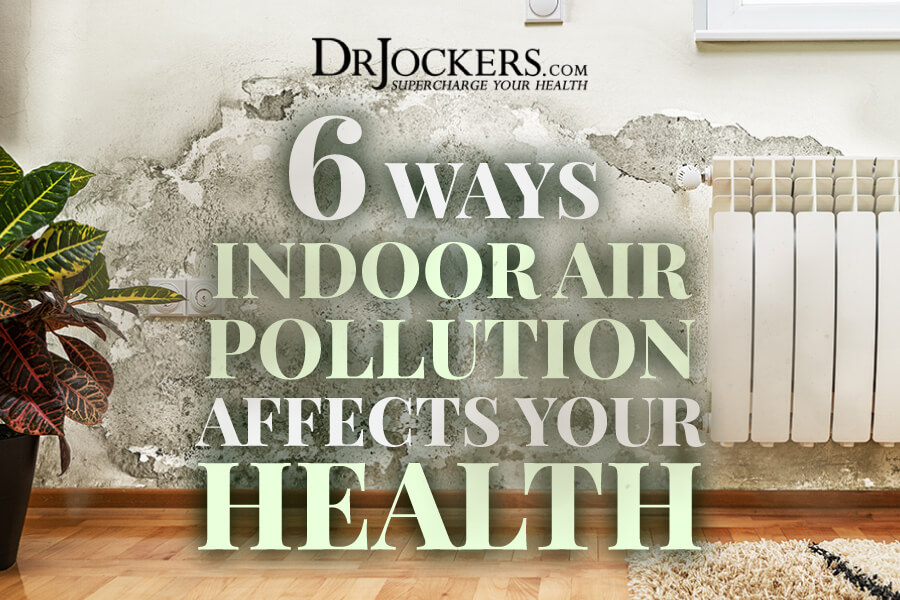 6 Ways Indoor Air Pollution Affects Health
6 Ways Indoor Air Pollution Affects Health
Could the air you are breathing in be harmful to your health and lead to lasting health effects? It is easy to forget about air as a potential risk factor for our health because we can’t tangibly see air to consider its power. Most Americans spend about 90% of their time indoors. Additionally, indoor air pollution is typically much worse than outdoor air quality unless you take steps to filter it properly. Indoor air pollution effects your health in more ways than you know.
When it comes to overall health, the quality of the air you are breathing is something to really consider. Out of the 90% of time that most people spend indoors, 65% of that is actually in your own home. You may be thinking that your home is safe and free of toxic air pollution but you may want to think again.
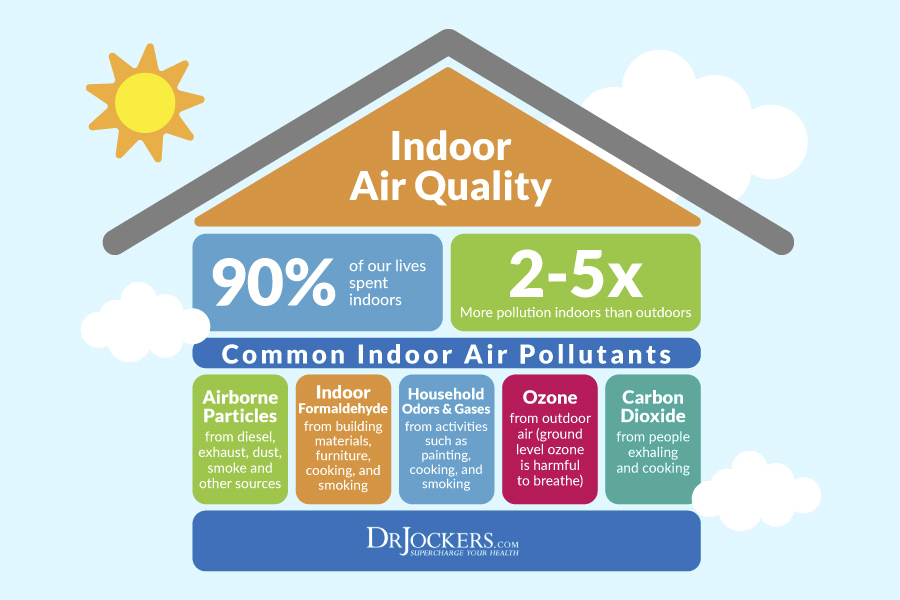
Sources of Indoor Air Pollution
Many household products contain toxic chemicals that can turn into air pollutants in your personal environment. Most indoor air pollution originates from sources that release gases or particles into the air. Candles, air fresheners, cleaning products and other household items can be potential culprits of air pollutants in your home. The products in your home, aren’t the only compromising aspects of your indoor air quality.
Poor ventilation in your home can also taint your indoor air quality, without the release of air pollutants in your home from proper ventilation an accumulation of pollutants will make home in your air. In recent years, homes have been constructed to be well-sealed fortresses to help reduce utility expenses. However, a trade-off occurs when you then compromise the quality of your indoor air which can then lead to potential health issues in the future from long-term exposure.
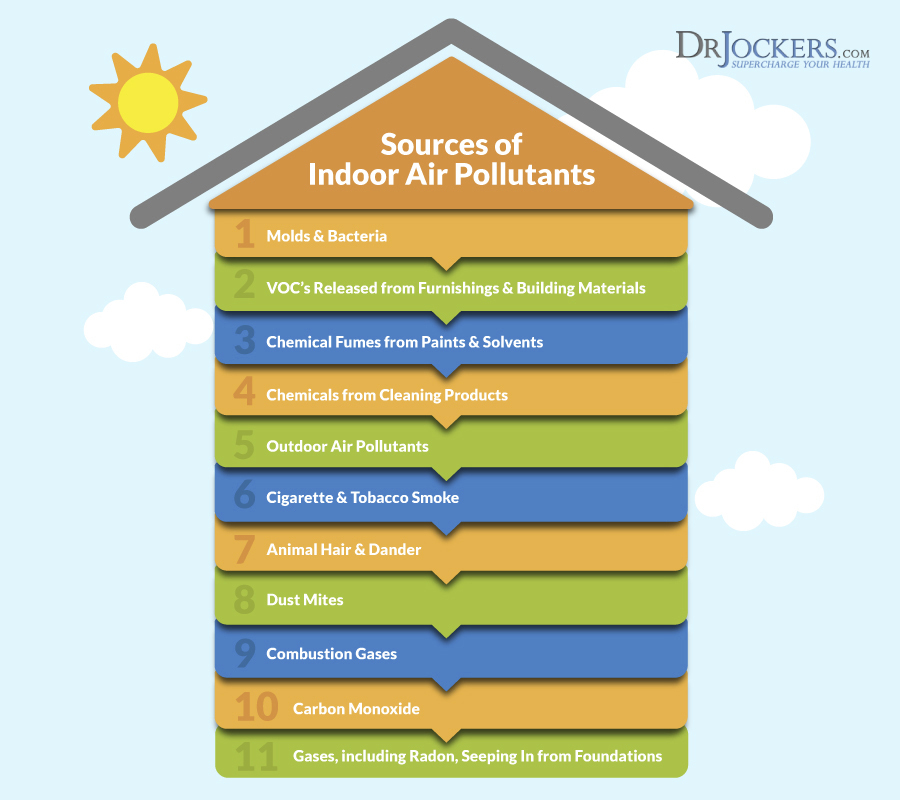
Health Effects of Air Pollution
Indoor air pollution was ranked as one of the top five environmental risks to public health according to the United States Environmental Protection Agency (1). Scary, isn’t it? The effects that air pollutants and poor indoor air quality can have on our health is a very imminent threat to our overall health.
The severity of the potential health effects from indoor air quality depends on a few things, specifically how polluted your indoor air really is and how long you have been exposed to the hazardous pollution. Symptoms that usually are acquired from indoor air pollution can range from coughing, sneezing, watery eyes, fatigue, dizziness, headaches, and upper respiratory congestion.
Although, these short-term effects may not sound too threatening the inherent long-term effects that can affect you have the risk of being quite detrimental to your health. Long-term effects can range from weight gain, depression, allergies, autoimmune disease, cardiovascular disease or even asthma.
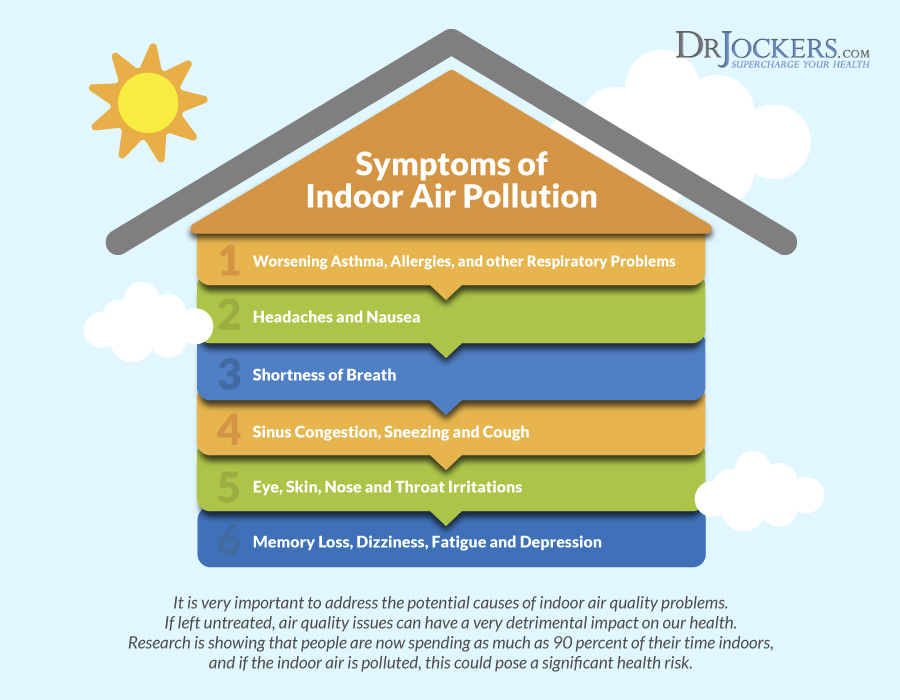
Weight Gain
Have you been packing on the pounds but just can’t understand the sudden fluctuation on the scale? You may be following your diet and eating all the right things but the pounds keep coming on for no reason. Could your indoor air pollution play a role in this sudden and unexpected weight gain?
Simply put, yes, it is possible that your compromised indoor air could be contributing to the elevated number you see on the scale. Many things can be an added factor to weight gain including metabolism, genetics, and shockingly enough the air you breathe in every day.
A study published in the Journal of the Federation of American Societies for Experimental Biology found that two groups of rats who were served the same diet but in two different indoor air environments had surprising results. The group of rats that were exposed to and breathed in more polluted air gained more weight in comparison to the group who was exposed and breathing in clean, filtered air (2). These results can implicate the same unnerving outcomes for humans that are also exposed to indoor air pollution.
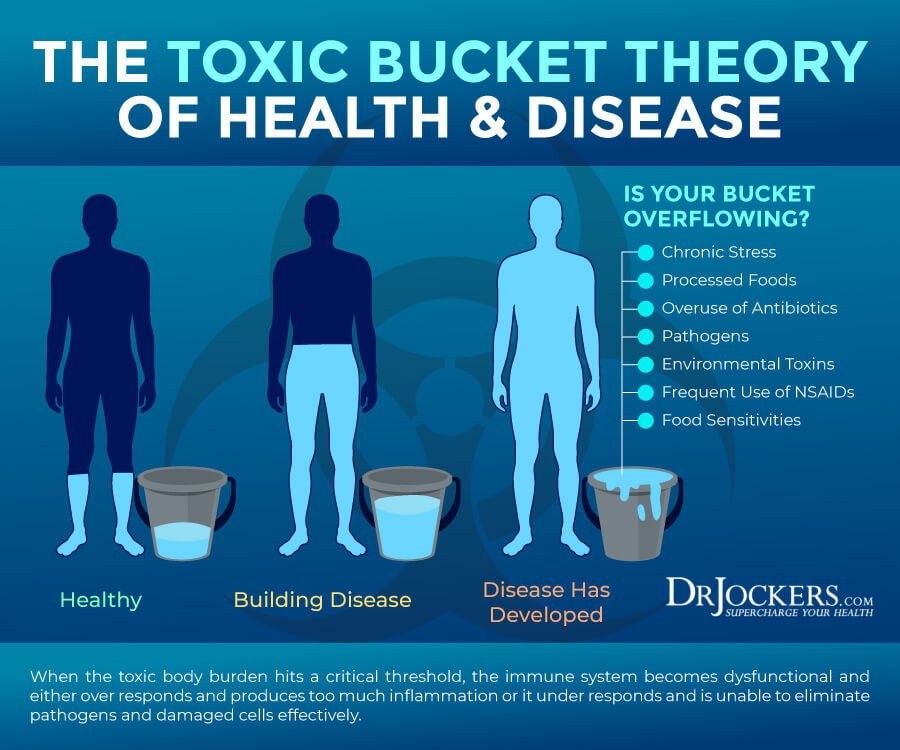
Depression
Depression is a leading cause of disability worldwide, according to The World Health Organization. In recent years depression has become a serious health condition that many people suffer from that can debilitate their quality of life. Depression is commonly associated with genetics or a life event that can progress this state, but what if the air you breathe everyday contributes to this condition?
The potential risk factor of depression can be hard to pinpoint, with research having a strong focus on air pollution that can magnify the intensity of depressive symptoms. As many as 8 out of 10 analyzed research shows a significant correlation between long-term exposure to air pollution and depression (3). This could be potentially due to the inflammatory response that being exposed to environmental toxicity has on the body.
A study conducted by the Yale School of Public Health found as well that an increase in air pollution was linked with an increase in higher levels of depression (4). Getting rid of indoor air pollution can possibly be a method of aiding in the severity of your depression and help to aid in the betterment of your overall health.
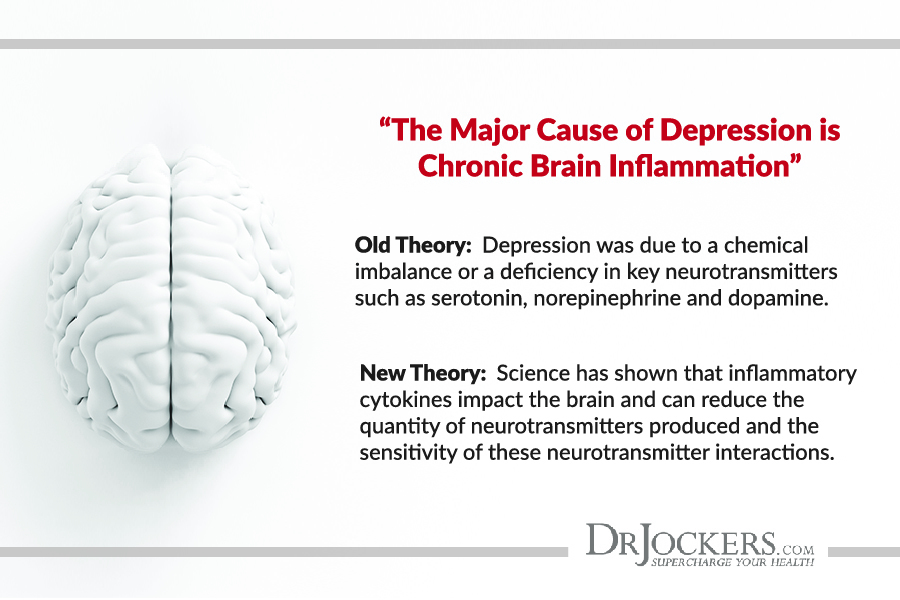
Asthma
The World Health Organization estimated that 20 percent to 30 percent of all respiratory diseases are a result of ambient and indoor air pollution (5). This would stand to reason since inhalation is the key passageway for air pollutants and affects the respiratory system. More than 18 million adults and 6 million children as of 2012, suffer from asthma.
Could this increasing trend be the result of poor indoor air quality? Asthma, a respiratory disease, can be severely impacted by poor indoor air quality and can be caused by breathing in toxic air pollutants in your environment. Air pollutants are small particles that find their way into your air, and taint the air you breathe which can than lead to potential respiratory issues.
Indoor air pollutants and allergens play a major role in triggering asthma attacks, as well as eliciting asthma symptoms or just making a person’s asthma worse in general.
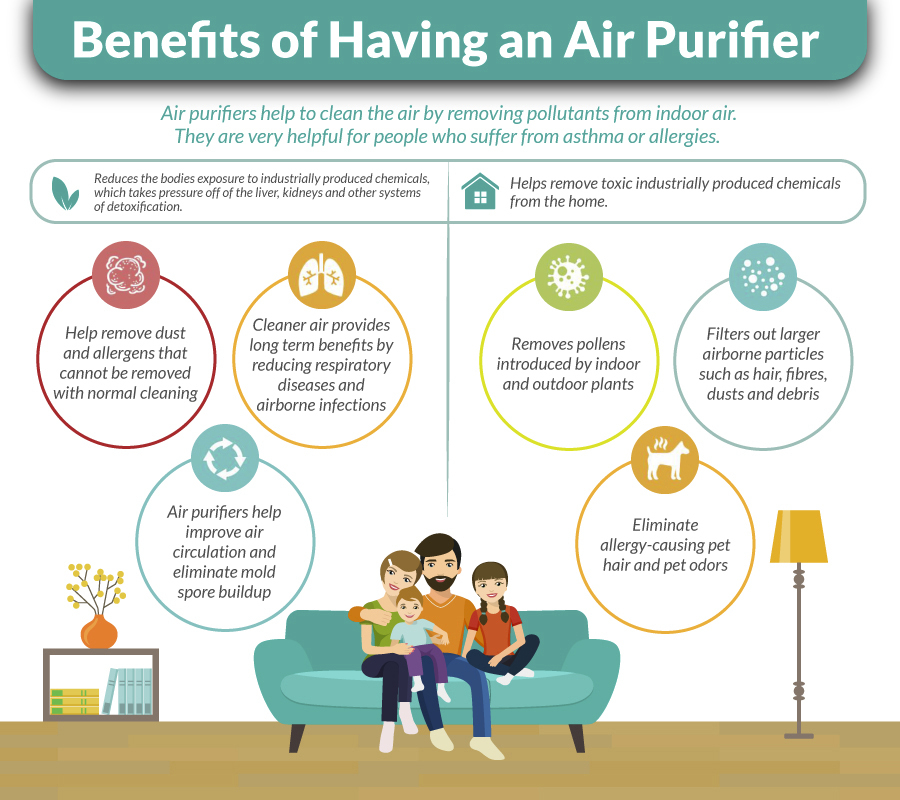
Allergies
Allergies come around as allergens find their way into your air, as one in five Americans will likely experience allergy-related illnesses at some point in their lives, and indoor allergens are predicted to be the key component for many, according to the Institute of Medicine (6). The pollutants in your home’s air can trigger the onset of allergy symptoms such as skin rash, headaches, sneezing, runny nose, swelling, and fatigue.
When pollen is in the air it is usually when allergies come roaring their ugly head in full force. In recent years as the temperature drops in the winter and we shelter ourselves indoors, allergies have been steadily increasing as air pollutants flood your home’s air. Not only does your home contain indoor air pollutants that have been brought by various household items such as the cleaning products you use in your home, but your home’s air also contains outdoor allergens that force their way into your tightly ventilated home.
Your home’s HVAC filter can play a critical role in trying to eliminate allergens from your personal indoor environment. Most HVAC filters lack the ability to capture and eliminate a broad spectrum of chemicals and odors that come into contact with the filter, and these filters tend to get used fairly quickly, meaning you are changing them more frequently than you really should.
With the EnviroKlenz HVAC filter you can effectively remove allergens and chemicals in your air, which in turn will help to minimize the impact allergies have on you all year round.
Autoimmune Diseases
Autoimmune diseases have recently come to light as more and more are diagnosed each year with these debilitating diseases. Autoimmune diseases are characterized as an immune response which in turns leads to the destruction of the body’s own tissues and organs. A new Canadian study suggests that the recent increase in diagnoses of autoimmune diseases can be attributed to air pollution.
Another study found that one category of particulate matter, diesel exhaust nanoparticles showed to have an inflammatory response on the cells of those who suffer from systematic autoimmune rheumatic disease (7).
Also, fine particulate exposure was correlated with an inherent risk of systematic autoimmune diseases (8). Someone suffering from autoimmune disease, their body treats their organs and tissues as invaders that the body tries to kill off, and any environmental trigger can enact this response, making air pollutants a danger to those with an autoimmune disease.
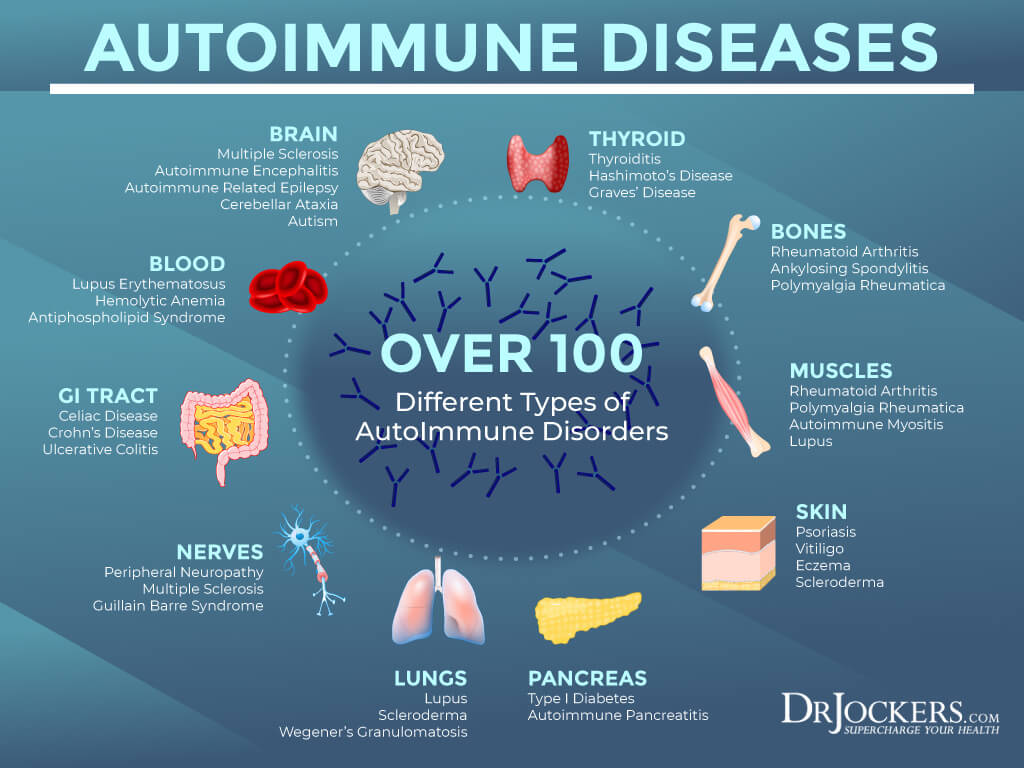
Cardiovascular Disease
Every 40 seconds in the United States somebody dies from cardiovascular disease, according to the American Heart Association. This alarming statistic sheds light on the precarious and dangerous condition of cardiovascular disease. What can attribute to this statistic? Indoor air quality could be just one of the potential contributing factors to cardiovascular disease.
The EPA has conducted research and studies to try to progress our understanding of the possible link between air pollution and heart health. Findings have concluded that oxidative imbalances occur, and when you inhale air pollutants it can negatively affect your cardiovascular system (9). Essentially, increased environmental air pollution results an increase in oxidative stress and inflammation at the cellular level of the body which leads to an increased risk of arterial calcification.
Pollution particles smaller than 2.5 microns are the main cause for concern says researchers. Due to the fine size of these particles they aren’t easily partitioned and can become more easily digested in the human body, which then can lead to irritation of the lungs and blood vessels around the heart (10, 11).
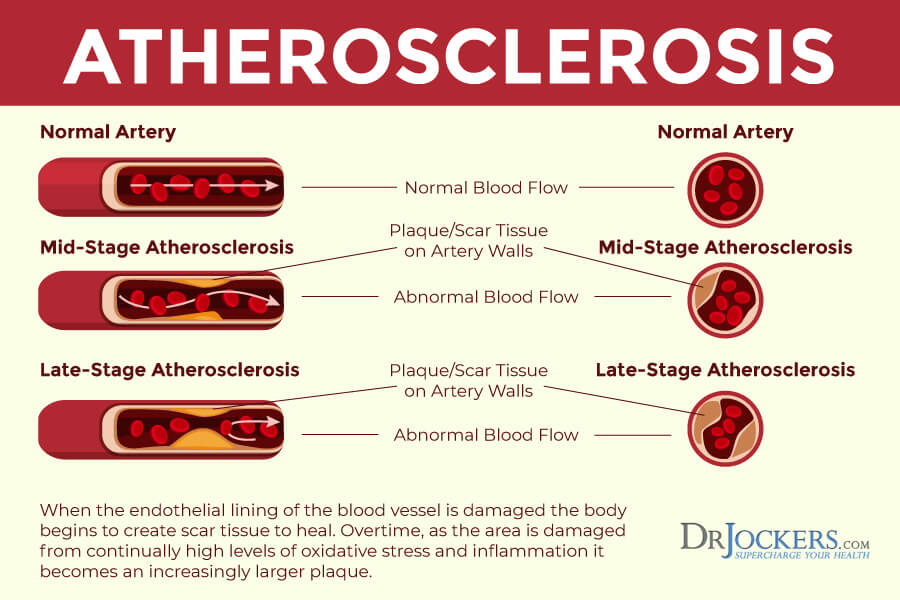
How to Prevent Air Pollution in Your Home
Are you ready to go through your home now and decontaminate for possible pollutant culprits? Pollutants can enter into your home in several ways either originating in your home or sneaking in through your clothes or other items that collect the pollutants, such as pollen and allergens.
Indoor pollutants can come from a variation of things including pet dander from your animal, to cleaning products, or even cooking fumes. Preventing air pollution in your home is possible though. You can successfully combat and minimize the amount of air pollutants in your home by simply treating the air in your home.
Purify Your Indoor Air
Treating your air is the key in eliminating air pollution in your home. What exactly is the best way to treat the air in your home without releasing more chemicals into your air? Buying a home air purifier system can help to drastically improve the quality of the air in your home. The EnviroKlenz Mobile Air System has a two-stage filtration, a patented earth mineral technology air cartridge and a hospital grade HEPA filter. It is completely safe to use and non-toxic.
The technology works on a broad spectrum of chemicals and odors to capture and neutralize them at the source. Unlike many other air purification systems that take in chemicals and re-releases them back into the environment, acting counterproductively. Make sure to do your research before purchasing an air purifier for your home.
Indoor air quality can be a very serious issue for many people, however the attention it gets can be less than what is necessary. With the recent studies that have found potential links to health ailments like weight gain, depression, allergies, autoimmune disease, cardiovascular disease and even asthma, air quality should be at the forefront of people’s minds. Working towards protecting yourself and your home from poor indoor air quality and air pollutants can help you to better defend yourself against potential hazardous health ailments.
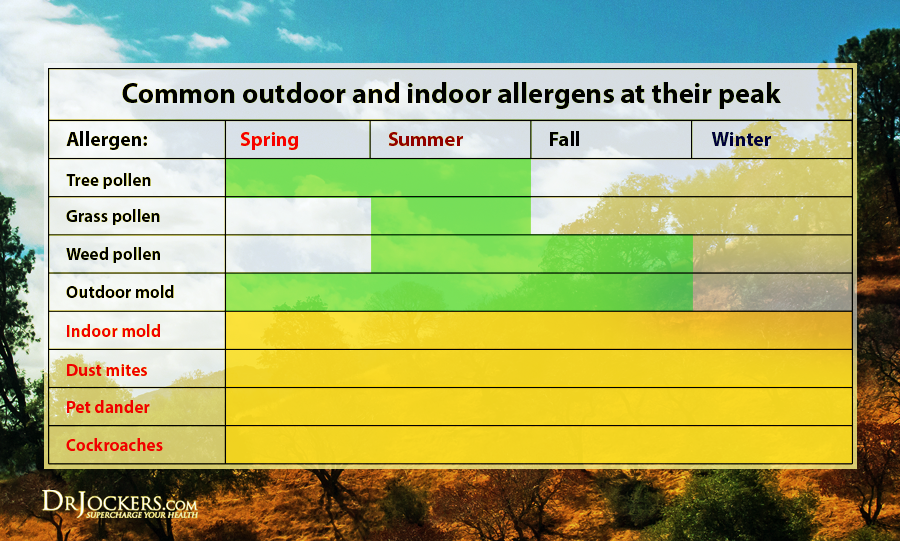
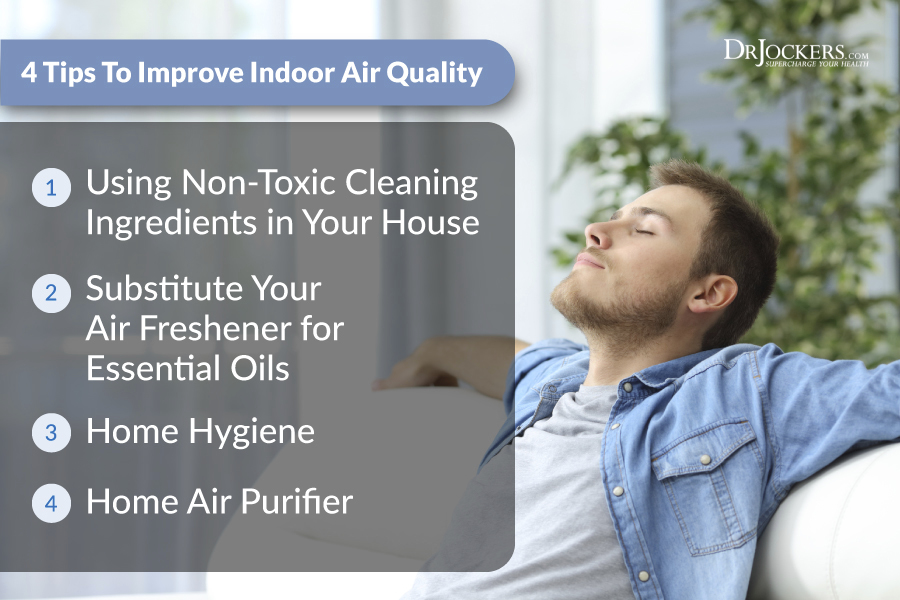




There is one more pollutant that you refer to in your article, but I feel should included in your list: synthetic fragrances, especially those fragrances that contain the chemical that make them “last and last”. Scented laundry detergent has become a real problem for those of us sensitive to fragrances, because it has been formulated to last, so it sticks to furniture, hotel bedding (even if it was laundered in fragrance free detergent). It has become difficult to go anywhere and not pick up someone else’s laundry detergent scent(s). Air “fresheners” are also great at clinging to your clothes and hair with even brief exposure.
Yes this is a major indoor air pollutant. Thanks for sharing that!!
Hi dr Jockers, great article!
I have one pollutant that can be added and often overlooked and maybe even worth a separate article (if there isn’t one already 🙂 ) and that is vinyl.
And the one I am talking about is the one in the disc shaped form as many may know there are many forms of this very hazardous compound in our homes.
I personally own about approximately 2500 to 3000 of these records and not too long ago I discovered that hazard they cause.
This was first of all pretty unsettling because I love to collect the music that makes me feel good.
But realizing just that, the feeling good part, and understanding that feeling good is just the thing that is the established by good health, why in the world would I compromise that by keeping my collection of vinyl records (and growing).
All stands or falls with or without health. So, that is why I made the decision to get rid of my collection and I really want not only just do that, but I would want to make other people aware of what they are living with and what the dangers of these can be.
Doing that, people become more aware, maybe causing to change things for themselves and they start to spread the awareness and if this jump starts a turnaround where people would start buying more conscious.
But, to come back on topic, vinyl has the nasty characteristic of out-gassing. That means that the polymer compounds inside start to deteriorate and that process pretty much starts after being made in the factory. That out-gassing has very bad effects on the human body that one can find information about on the web. But to be short, it will kill you. And that is why people need to be aware of this highly toxic and very commonly used material in our households.
Another thing is that it cannot be recycled as there is no way to do that. So, everything existing ends up either in someone else’s living area or in a music shop or land fill where it will leak out all the hazardous chemicals into the ground and groundwater etc.
I personally was made aware of this through a youtube clip where a known music artist made a clip about this and turned around himself. Very courageous person I think, but he got me thinking 🙂
Here in Holland, there is already a company who is pioneering(?) in making records that are not hazardous to the environment. So thumbs up for that. Thanks dr. Jockers for reading and hope to hear from you. Would love to know if you did an article on this toxic substance. Oh, do you have any advice in equipment like air quality meters and also (off topic) EMF meters?
Thanks, greetings from the Netherlands, Danny
Thanks for sharing Dan! Yes, here is a helpful article on EMF: https://drjockers.com/emf-exposure-dangers-symptoms-and-protection/